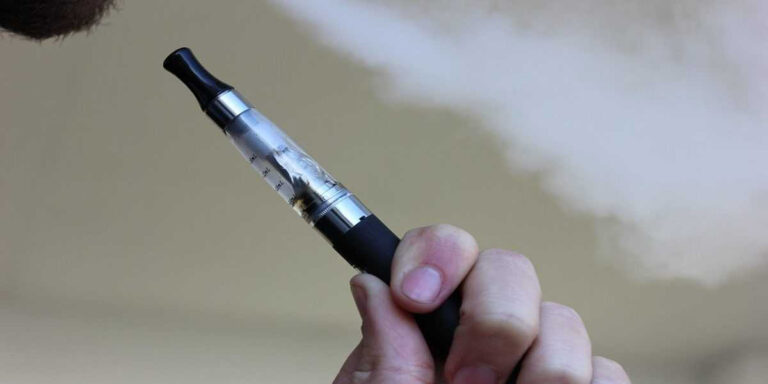Discover how the FDA’s regulatory actions in the first half of 2024 have impacted the U.S. e-cigarette market, from bans and approvals to enforcement and legislative changes.
The first half of 2024 has been a period of substantial regulatory activity and market fluctuation for the U.S. e-cigarette industry. The FDA has been at the center of this turbulence, implementing a series of actions that have stirred the market significantly. From bans on flavored e-cigarettes to the approval of menthol products and the establishment of new enforcement measures, the interplay of regulatory and legislative forces has created a dynamic and contentious environment.
FDA’s High Regulation and Weak Enforcement
Overview of FDA Announcements
As of June 24, 2024, the Center for Tobacco Products (CTP) has released 42 official announcements, including:
- Marketing Denial Orders (MDOs) for nearly 100 products across six brands.
- A permanent injunction against an e-cigarette manufacturer.
- Authorization of four e-cigarette products from a new brand through Pre-Market Tobacco Applications (PMTAs).
- Warning letters to 100 retailers for selling unauthorized e-cigarettes or e-liquids.
- Civil penalties against 73 retailers for selling unauthorized products.
- Warning letters to three online retailers for selling flavored ZYN nicotine pouches.
Among these, only one involved the seizure of e-cigarette products: on April 30, 2024, unauthorized e-cigarettes worth over $700,000 were seized in a joint operation with the DOJ.
Regulatory Approach
The FDA has reviewed nearly 27 million PMTA applications, deciding on over 26 million but approving only 27 tobacco and menthol e-cigarette products and devices. This reflects a stringent regulatory review process but weak enforcement, relying heavily on MDOs, warning letters, and civil monetary penalties (CMPs). Direct actions such as product seizures or joint enforcement are rare, though notable instances demonstrate the potential for more robust enforcement:
- In December 2023, a joint operation with U.S. Customs and Border Protection (CBP) seized 1.4 million illegal e-cigarette products, valued at over $18 million.
- In April 2024, a joint effort with the DOJ and U.S. Marshals Service led to the seizure of 45,000 illegal products worth over $700,000.
Impact of Weak Enforcement
Despite these high-profile actions, the FDA’s enforcement against the gray market remains relatively lenient. This discrepancy between regulatory intent and enforcement capability has significant implications for market stability and public health.
State-Level Regulatory Activities
Fragmented State Legislation
State governments across the U.S. have also been active in regulating e-cigarettes, leading to a complex and fragmented regulatory landscape. Key actions include:
- Florida initiated legislation to ban disposable e-cigarettes.
- Kentucky passed new legislation to strengthen regulation.
- Oklahoma and New York legislated against illegal and youth-appealing e-cigarettes.
- Utah joined the ban on flavored tobacco.
- Nebraska established a registration system with a fee.
- Iowa reviewed new regulations awaiting the governor’s signature.
- Missouri targeted illegal marijuana and e-cigarette devices.
- New Jersey proposed increased penalties and strengthened regulations.
Federal vs. State Authority
These state-level initiatives indicate a shift from flavor bans to broader regulatory frameworks, weakening the FDA’s authority at the state level. This divergence adds to the complexity of enforcing consistent e-cigarette regulations nationwide.
FDA Under Pressure: Shifts and Responses
Internal Inconsistencies
The FDA’s inconsistency in PMTA reviews has been a point of contention. For instance:
- January-February 2024 saw bans on 22 SMOK products, Bidi tobacco-flavored products, and five BLU flavored products through MDOs.
- These actions led to challenges and lawsuits from e-cigarette companies, highlighting regulatory unpredictability.
By June 6, 2024, of the 311 MDOs issued, several were overturned, revoked, or stayed by courts, illustrating ongoing legal battles and administrative adjustments.
External Criticism and Legislative Pressure
The FDA has faced significant external pressure, particularly from Congress:
- A 2023 letter from congressmen highlighted the disconnect between substantial user fees collected since 2009 and the minimal number of PMTA approvals.
- April-June 2024 saw increased scrutiny with two hearings in the House and Senate, criticizing the FDA’s slow review process and enforcement inefficiency.
Recent FDA Actions
In response to criticism, the FDA has undertaken several actions:
- Formation of a new joint enforcement organization on June 12.
- Issuance of a permanent injunction against an e-cigarette manufacturer on June 17.
- Approval of four NJOY menthol e-cigarettes on June 22.
These actions indicate a potential policy shift in response to external pressures, aiming to improve enforcement efficiency and regulatory clarity.
Market and Regulatory Implications
E-Cigarette Market Fluctuations
The FDA’s actions and state-level regulations have created a volatile market environment. Regulatory uncertainty and enforcement challenges have influenced market dynamics, impacting manufacturers, retailers, and consumers.
Public Health Considerations
The regulatory focus on e-cigarettes underscores public health concerns, particularly regarding youth access and the safety of e-cigarette products. The FDA’s actions aim to mitigate these risks, though enforcement efficacy remains a critical factor.
Future Trends
The evolving regulatory landscape suggests ongoing adjustments in FDA policies and state-level legislation. Enhanced collaboration and more consistent enforcement could stabilize the market and improve public health outcomes.
Conclusion
The first half of 2024 has seen significant regulatory activity in the U.S. e-cigarette market, driven by the FDA’s actions and state-level initiatives. While these efforts reflect a commitment to public health and market regulation, challenges in enforcement and regulatory consistency persist. As the year progresses, further developments in FDA policies and state-level regulations will shape the future of the e-cigarette market, balancing public health priorities with market dynamics.
FAQs
What were the major FDA actions in the first half of 2024 regarding e-cigarettes?
The FDA issued Marketing Denial Orders (MDOs) for nearly 100 products, authorized four e-cigarette products through PMTAs, and conducted significant seizures in joint operations with other agencies.
How have state-level regulations impacted the e-cigarette market?
State-level regulations have created a fragmented regulatory landscape, with various states implementing their own bans and regulatory frameworks, weakening the FDA’s authority and adding complexity to market regulation.
What internal and external factors have influenced the FDA’s regulatory actions?
Internal factors include inconsistencies in PMTA reviews and MDO issuance, while external factors involve criticism from Congress and legislative pressure to improve enforcement efficiency.
What are the implications of the FDA’s regulatory actions for the e-cigarette market?
The FDA’s actions have created market volatility, influenced public health considerations, and prompted potential shifts in regulatory policies to address enforcement challenges and improve market stability.
How has the FDA responded to criticism regarding its enforcement of e-cigarette regulations?
The FDA has formed a new joint enforcement organization, issued permanent injunctions against manufacturers, and approved menthol e-cigarettes, indicating a shift in policy to address enforcement inefficiencies.
What future trends can be expected in the U.S. e-cigarette market regulation?
Ongoing adjustments in FDA policies, state-level legislation, and enhanced enforcement collaboration will shape the future regulatory landscape, balancing public health priorities with market dynamics.


















